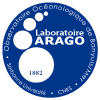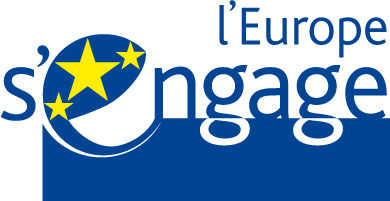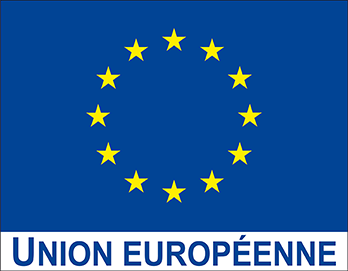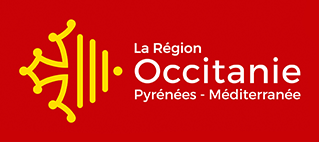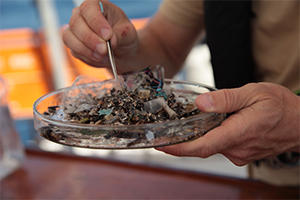
Civil society is concerned about the impact of pollutants on organisms (toxicology) and on the functioning of ecosystems (ecotoxicology). Marine environments are considered the final receptacle for a wide variety of pollutants from the continent (plastics, pesticides, hydrocarbons, heavy metals, pharmaceuticals), while they provide ecosystem services essential to life on earth. At the crossroads of complementary disciplines and benefiting from exceptional infrastructures, the OOB offers a unique framework for carrying out fundamental and applied research which aims to evaluate, predict and reduce the impact of humans on ecosystems sailors.
Complementary expertise from OOB researchers and engineers has been brought together for around ten years on the effect of pollutants on organisms and marine ecosystems. Systemic approaches are carried out at several levels, ranging from molecular, cellular, developmental and evolutionary biology on marine model organisms (BIOM - UMR 7232) to pelagic (LOMIC - UMR 7621) and benthic (LECOB - UMR 8222), including the valorization of marine microorganisms in biotechnology and pharmacology (LBBM - USR 3579). Our objectives aim not only to carry out fundamental research to understand the impact of pollutants on biological processes and vice versa, but also to carry out applied research to provide tools that can be easily used by society to monitor the evolution of quality of the environment and restore polluted sites.
Approaches
- Propose multidisciplinary approaches for assessing the quality of the marine environment
- Evaluate the impact of plastics on the marine environment and propose environmentally friendly solutions
- Propose an experimental platform dedicated to marine toxicological and ecotoxocological studies
Federative actions
1 - Evaluate the quality of the marine environment to better protect it
The protection and restoration of aquatic environments are the subject of proactive policies at the European level by the Marine Environment Strategy Framework Directive (MSFD). The Observatory has been involved in measuring environmental quality descriptors for more than a decade at the local, national and international level. Our ability to bring together our multidisciplinary expertise makes it possible to describe the Exposure-Danger-Effects triptych essential to the implementation of risk reduction strategies for the Environment
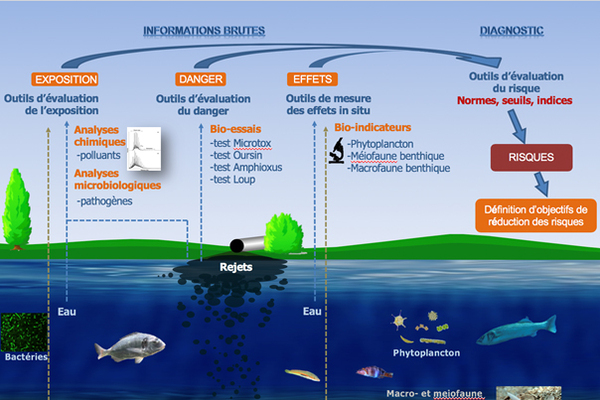
2 - Propose solutions to plastic pollution in the Oceans
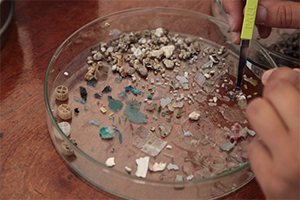
A first federative action was carried out to assess the impact of plastics on deep Mediterranean coral ecosystems. With the support of the Rovaltain Foundation (PLAISCOOL project, 2017-2018), a multidisciplinary study made it possible to assess the impact of micro- and macro-plastics on this particularly fragile ecosystem. Our expertise has also been supported by two projects funded by the Ministry of Ecological and Inclusive Transition to assess the ecological impact of conventional plastics and substitutes for exfoliating microbeads and cotton buds (MICROBEADS et BIOTIGES projects 2017-2019). A unifying project funded by the National Research Agency (ANR) studies the biodegradability and toxicity of oxo-degradable polymers (ANR-OXOMAR project 2017-2020) and conventional or biodegradable plastics (ANR PLASTIMAR project 2024-2028). This unifying theme contributed to the emergence of the SME Plastic@Sea hosted in the OOB's Arago Incubator.
3 - Propose an Experimental Platform for Marine Ecology and Ecotoxicology (P3EM)
The OOB CPER project will enable the development of this platform which aims to respond to a growing demand for experimental devices (microcosms and mesocosms from <1L to 500L) allowing the use of pollutants at low doses in compliance with the hygiene and safety standards (treatment of air, water and effluents). In connection with our involvement in the European Marine Biological Resources Center (EMBRC), the P3EM developed in the OOB will provide exceptional experimental systems as well as diagnostic tools available to a large scientific community wishing to assess the impact of pollutants on marine ecosystems.
